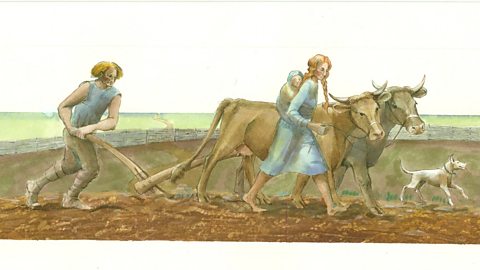Life in the Neolithic period
Around 4,000 years ago, instead of spending all their time hunting and gathering, people in Britain started living in a new way. They began to set up farms.
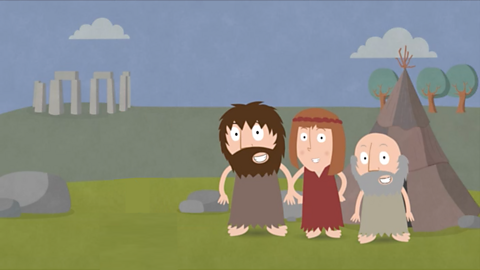
These farms marked the start of a new age in Britain вҖ“ the Neolithic period (or new Stone Age):
- The early farmers chopped down trees so they could grow crops and vegetables.
- They kept cattle, sheep and pigs.
- People began to settle down in one place and build permanent homes.
As well as setting up farms and permanent homes, they also built massive tombs and giant stone circles. Some of the monuments and homes they built can still be seen today.
Farming in the Stone Age
By 3500BC people in many parts of Britain had set up farms. They made clearings in the forest and built groups of houses, surrounded by fields.
The early farmers grew wheat and barley, which they ground into flour. Some farmers grew beans and peas. Others grew a plant called flax, which they made into linen for clothes.
The early farmers still went hunting and gathered nuts and berries to eat, but they spent most of their time working on their farms.
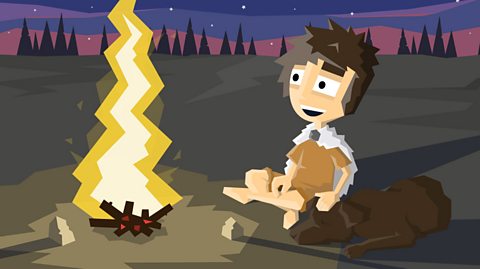
What animals did they keep?
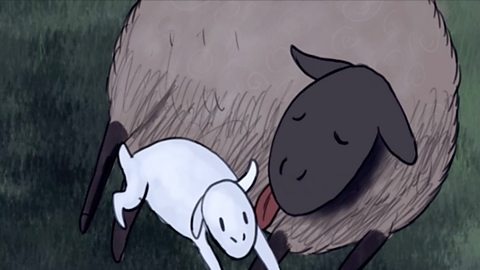
Neolithic farmers kept lots of animals.
They had herds of wild cows that had been domesticated (tamed).
The cattle provided beef, as well as milk and cheese.
Sheep and goats provided wool, milk and meat.
Wild pigs were domesticated and kept in the woods nearby.
Dogs helped on the farms too. They herded sheep and cattle and worked as watchdogs.
Dogs were probably treated as family pets, like they are today.

What were houses like?
Most Neolithic people built houses with wooden frames. But there were some places where wood was hard to findвҖҰ
On the Orkney Islands, off the coast of Scotland, there are no trees. Neolithic people on the islands built their houses from stone.
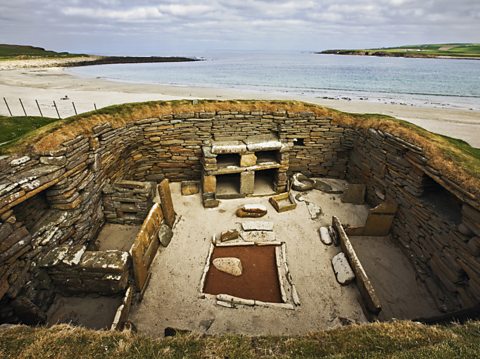
The Skara Brae settlement on the Orkney Isles dates from between 3200 and 2700BC. It is made up of a group of one-roomed circular homes.
These houses have built-in furniture made completely from stone. There are stone seats and beds and even stone shelves where precious objects were kept!
Today, the homes at Skara Brae are open to the air, but they were probably covered with roofs of turf and bracken. Each home would have been linked by a set of covered passageways, so people could visit whilst keeping warm and dry.
Watch: Take a tour inside a Stone Age house at Skara Brae
What was inside a Neolithic home?
The dresser would have been the first thing you would see when you came through the door. It was clearly important. What kind of things would they have placed on it?
Well, think of what people display today in their homes - things important to them, things that make statements about them.
Though 5,000 years ago, there werenвҖҷt any clocks or picture frames. These beautiful objects are the kind of things that would have been displayed there.
As you sat on the large stone seat directly in front of the dresser, you'd have a clear view of the door and be able to see whoever crawled in.
As they entered, they'd have to look up at you. The door itself is only lockable from the inside. So when you came in here, youвҖҷd be able to shut the outside world out, have privacy.
We think a bone, or a piece of wood, could have been used to hold the door in place. But today all that remains are the holes in the stone which held the bar.
Once your guest had arrived and the door was closed, you could offer fresh fish and meat cooked on the fire. And in winter, smoked meat stored in the smoky roof space would be available.
Huge storage jars, too big to be brought in through the door, were buried in the corner of the house. The top of these pots were beautifully decorated and the area where they sat was surrounded by stone to protect them from being bumped and broken.
What monuments did Neolithic people build?
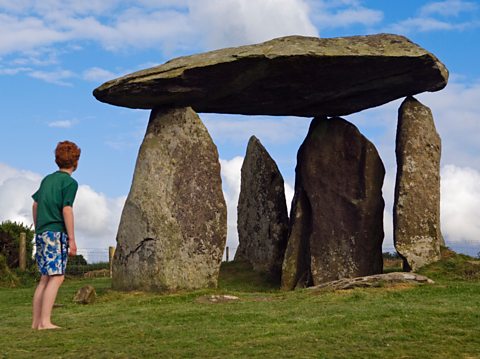
Neolithic people built grave mounds and stone circles. They also met for religious ceremonies on large, circular platforms that are known as causewayed enclosures.
People stored the bones of the dead in large graves known as long barrows. These graves were built from stone and covered with a mound of earth.
The graves had a central passage, with several side-chambers containing sets of bones. There were also smaller graves, with a single burial chamber.
During the Neolithic period, people started to build stone circles. This practice continued in the early Bronze Age.

Activities
Activity 1: What tools did they make?
Neolithic people made a range of tools and other objects to help them in their daily life. Click on each object to find out more.
What would you make if you lived like them?
Activity 2: Neolithic Stone Age quiz
Bitesize Primary games. gameBitesize Primary games
Play fun and educational primary games in science, maths, English, history, geography, art, computing and modern languages.

More on Prehistoric
Find out more by working through a topic
- count6 of 21
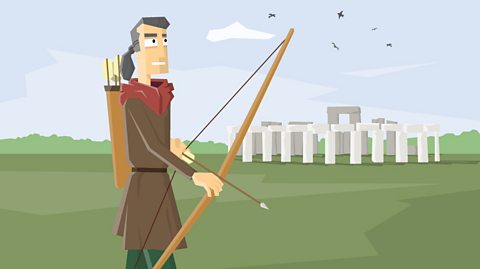
- count7 of 21
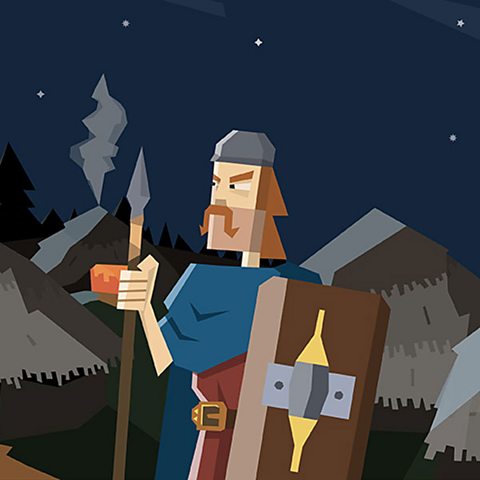
- count8 of 21
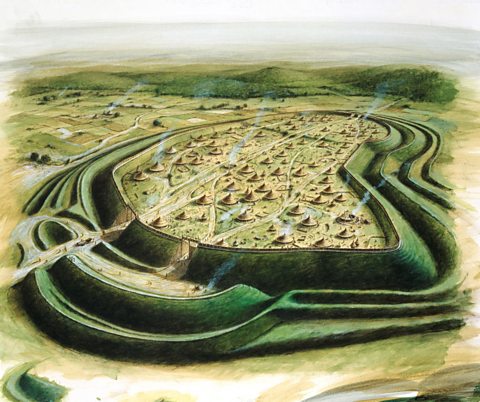
- count9 of 21
